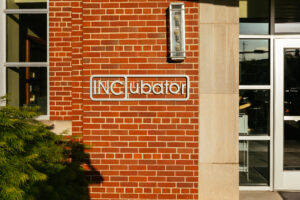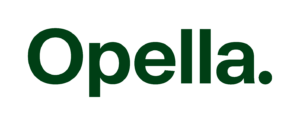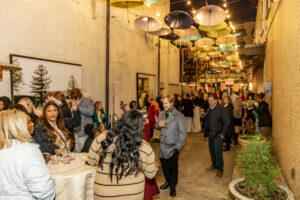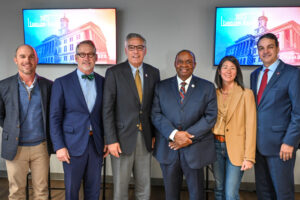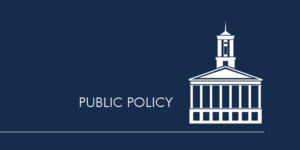Holly Ashley
Founded in 2015 by Brandon Ennis, Naseem Jibrin, Benjamin Ennis, Michael Winn and Bryan Ennis, E&G Associates offers engineering consulting in solids processing industries including chemical, pharmaceutical, food and additive manufacturing. Services include consulting, instrumentation sales, workshop training and simulations.
Q: Tell me about your business.
A: [Brandon] E&G Associates is an engineering consulting firm specializing in the handling of powders and bulk solids. About 60 percent of material handling processes in this country are solids – not liquids – but most systems are not designed well to handle them, which can cause costly design capacity failures for companies. We specialize in solving those kinds of engineering problems for our clients.
Q: What does your client base look like?
A: [Naseem] We typically work with very large companies all over the continental United States, with a few clients beyond that. We can’t name anyone individually, but we’ll give you two examples of the range of clients we serve.
[Brandon] One of our larger clients is a coffee manufacturer. When you manufacture coffee on a massive scale, you’re dealing with extremely high volumes of product. Imagine coffee moving from a silo the size of this room (approximately 1,500 square feet) all the way to individual cans. The density of that coffee is measured within a thousandth of a pound, which is a very tight tolerance. If everything doesn’t go through the process in a consistent mix, the product fill variance will be too great and it will cost the company a fortune. So we work to create systems where everything will distribute evenly. Another example is a technology company that’s trying to get into additive manufacturing. They’ve always been ink and paper folks and decided to take on a huge R&D project to enter the market, but it turned out there were some things about additive they didn’t understand. We spent a lot of time with them on how to handle the powders in the printing process from beginning to end.
Q: Who are your competitors?
A: [Brandon] Our competitors fall into three classes – the full service firm, material handling equipment vendors and retired engineers who turn independent consultant. With equipment vendors, the people who build the material handling equipment, they all too often don’t know the science as well as they should so you end up with silos where all the angles are designed wrong for processing solids. That’s a very common problem.
The best model is one where a client gets both testing and design in one place, the one-stop-shop model that we offer. It’s what makes our company unique in the market. We’re one of only two firms in the country where clients can access material analysis and design all in one place. And unlike a lot of engineers in this space, we can handle a variety of engineering problems.
The classic problem in our field would be the coffee client I mentioned before. But pretty much all the same physics and engineering can be applied to the handling of powder for a 3D-printer, like for our technology client. Most of the providers in our field don’t like to work on some of the more esoteric problems like additive manufacturing, but we are comfortable tackling those. That willingness and ability to do both positions us halfway between a design firm and an R&D firm; it sets us apart from our competitors.
Q: What excites you the most about your field?
A: [Brandon] There’s not a lot of training for new engineers in this line of work, and it’s already a pretty small field. I personally know a lot of these folks, and frankly, some of them are getting older and headed towards retirement. There’s not a lot of new talent right now, so it’s a really good time for us to jump in.
[Naseem] Knowing we can do something that, I wouldn’t say a lot of engineers can’t do, but something they haven’t been trained to do, is interesting. It’s exciting our team has the unique breadth of knowledge to build this business.
Q: Where do you want your company to be in three years?
A: [Brandon] I would like us to further develop internal methods that will allow us to move through customers faster. That’s our limiting factor right now. It takes a lot of time to do this work and if we can successfully develop some of our own methods and design codes, it will enable us to essentially expand beyond a small group of people working on difficult problems. We would also like to develop a local client base to include companies within 200 miles of Chattanooga.
[Benjamin] We also build some custom instrumentation for powders testing. We sell it when anyone is interested in buying it, but it’s a little more expensive than just hiring us to do the testing ourselves.
[Brandon] Right now, the instrumentation we build is bespoke; they’re one-off, built by hand, high precision tools. They take a lot of time to develop so it’s not exactly something we market heavily yet, but we’re considering redesigning a few and actually having an instrument line for our field.
Q: Tell me about your connection with UTC’s engineering program.
A: [Benjamin] I graduated from the program in 2013 in Civil and Mechanical Engineering.
[Naseem] I graduated in 2015 in Chemical Engineering. I’m also on the board of advisors for their chemical engineering lab.
[Brandon] I also graduated from UTC. I majored in Chemical Engineering in 2014.
[Naseem] I had a lot of classes with Brandon at UTC and Bryan Ennis was teaching there at the same time; I was actually his teaching assistant for a few semesters. They had just founded the company and were looking for a new engineer to join their team. I was between jobs at the time and I knew these guys pretty well, so it was a perfect fit.
[Brandon] We also did a training at UTC shortly before we incorporated. It was a two-day session held over fall break for students and local companies. We had engineering students sitting side-by-side with engineers who had been working in the field for a very long time and the interaction between the two as they worked on problems was a really great experience.
Q: What has the learning curve been like as engineers who are now entrepreneurs?
A: [Brandon] I think artists and engineers are kind of the same in saying, ‘I love doing this, I’m good at this, let’s go do it as a business!’ but then realizing, ‘oh wait, I have to do invoicing?’ I would say the business side has been the hardest. It’s definitely been a struggle for us.
[Benjamin] Yeah, balancing cash flow is a challenge. You do all this work and then you have a long payment term and realize you aren’t getting paid until, like, next year.
[Naseem] Largely, I think the startup phase has been difficult in trying to balance working with clients and also setting up a physical business office. That’s been a bit of a struggle, but I think we’re pretty established in our space now and finally moving past that.
Q: How has Chattanooga helped you as a startup?
A: [Benjamin] The INCubator program here at the BDC has been particularly helpful. It’s been great to find a nice space to set up an office and lab, as well as all the business classes the TSBDC runs. I think it’s a great environment for small businesses.
[Brandon] There’s also a lot of larger industrial businesses here in Chattanooga. None of them are currently on our client list, but we’re working on that. Having lived here and gone to school here, we were already acquainted with some of the manufacturers in the area, but if you’re not in the field you might miss them. There’s a fair amount of impressive industrial work going on in this town for its size.
